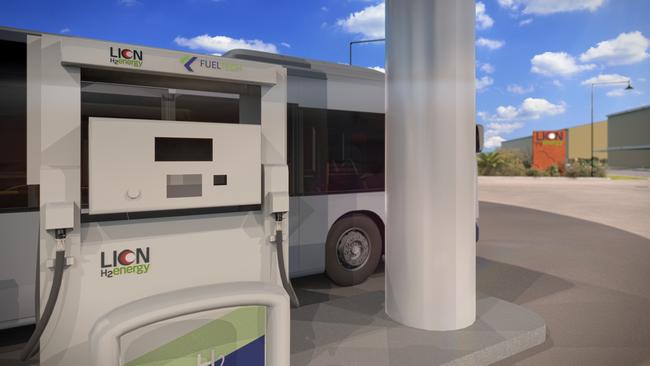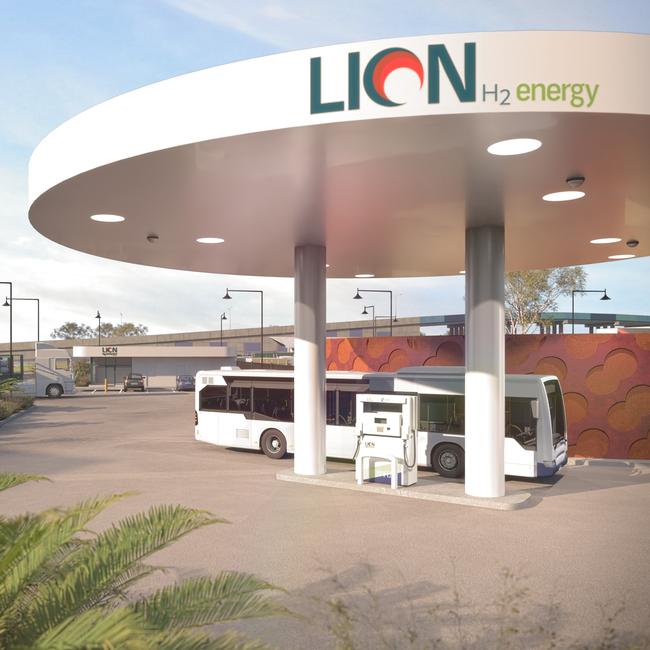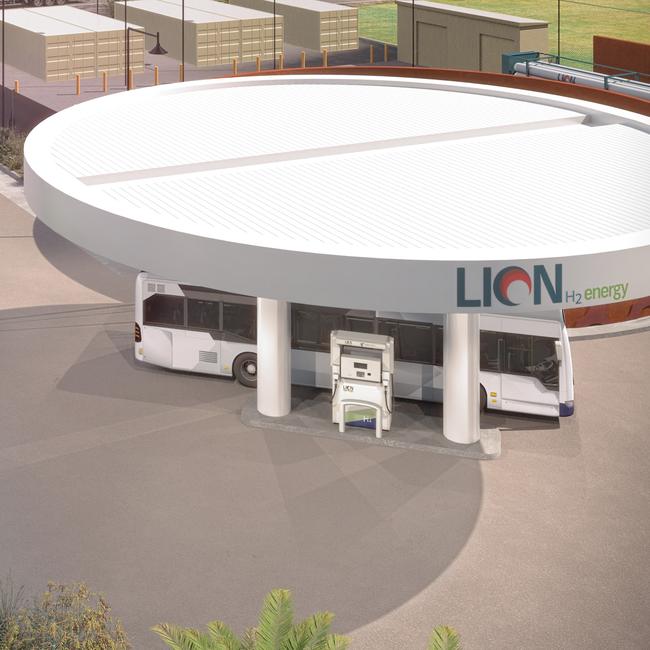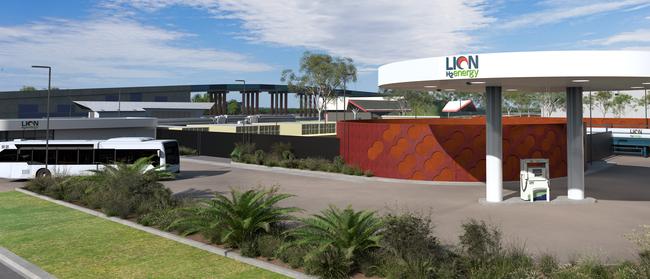Hydrogen fuel station to be built at Port of Brisbane for buses, trucks
An Australian-first futuristic fuel station will be built in Brisbane to power the city’s bus fleet along with other heavy vehicles.

QLD Politics
Don't miss out on the headlines from QLD Politics. Followed categories will be added to My News.
An Australian-first hydrogen fuel station will be built in Brisbane to power the city’s bus network and trucks under a landmark investment deal with Mitsubishi and Samsung.
The Port of Brisbane project has been pinned as the blueprint model for hydrogen fuel stations across the country and will produce more than 300 tonnes of hydrogen per year at about $17 per kg.
Australian hydrogen company Lion Energy has received development approvals from the state government and will today sign a $3.7m financial backing contract with Mitsubishi and Samsung to build the hub.
Lion Energy executive chairman Tom Soulsby said the deal would alleviate market risk for the first of its kind project in Australia, with the company hoping to build replica stations in Sydney and Melbourne.
“The aim is replace diesel generator sets with fuel cell, which will reduce fuel wastage and is quieter,” he said.

Fuel-cell devices generate electricity through an electrochemical reaction, most commonly using hydrogen, as opposed to battery power electricity or combustion energy using diesel.
Buses and trucks have been chosen to pioneer hydrogen fuel cell technology as they would require heavy batteries and longer charging times to electrify.
Mr Soulsby said hydrogen fuel stations were also much smaller and cheaper to invest in compared to electric bus stations, which would require added infrastructure to separately store and charge buses.
“Space management is essential in an expensive city like Brisbane, for instance, Brisbane City Council bought Toowong station for $132m for 50 parking spots, that’s $800,000 per parking spot,” he said.
“To build those extra spaces on depots for electric, who pays for that? Whereas for hydrogen we can establish a much smaller refuel space and refuel buses in seven minutes.”
Lion Energy has signed a 10-year lease with the Port of Brisbane and with the state government providing power and infrastructure through Energex and Powerlink, Mr Soulsby says Translink fleets could become hydrogen powered as soon as 2025.

Hydrogen energy industry heads and Energy Minister Mick de Brenni will gather in Brisbane this week to discuss market opportunities, including the Port of Brisbane deal.
Zero Carbon Hydrogen Australia manager Joanna Kay said while industry was leading the change, policy was not far behind and new domestic opportunities like the Port of Brisbane project was sparking trade interest from Japan, Korea and India.
“While uptake might appear slow, externally, we’re seen as a very competitive market,” she said.
“Japanese, Korean, Indian companies want to partner with Australian projects to grow their industry.”
Mr de Brenni said hydrogen investment is expected to created significant job opportunities in Queensland.
“Queensland’s nation leading energy and jobs plan has provided the framework for initiatives like this, showing the world that clean energy can both power thousands of jobs and drive down emissions,” he said.
More Coverage






